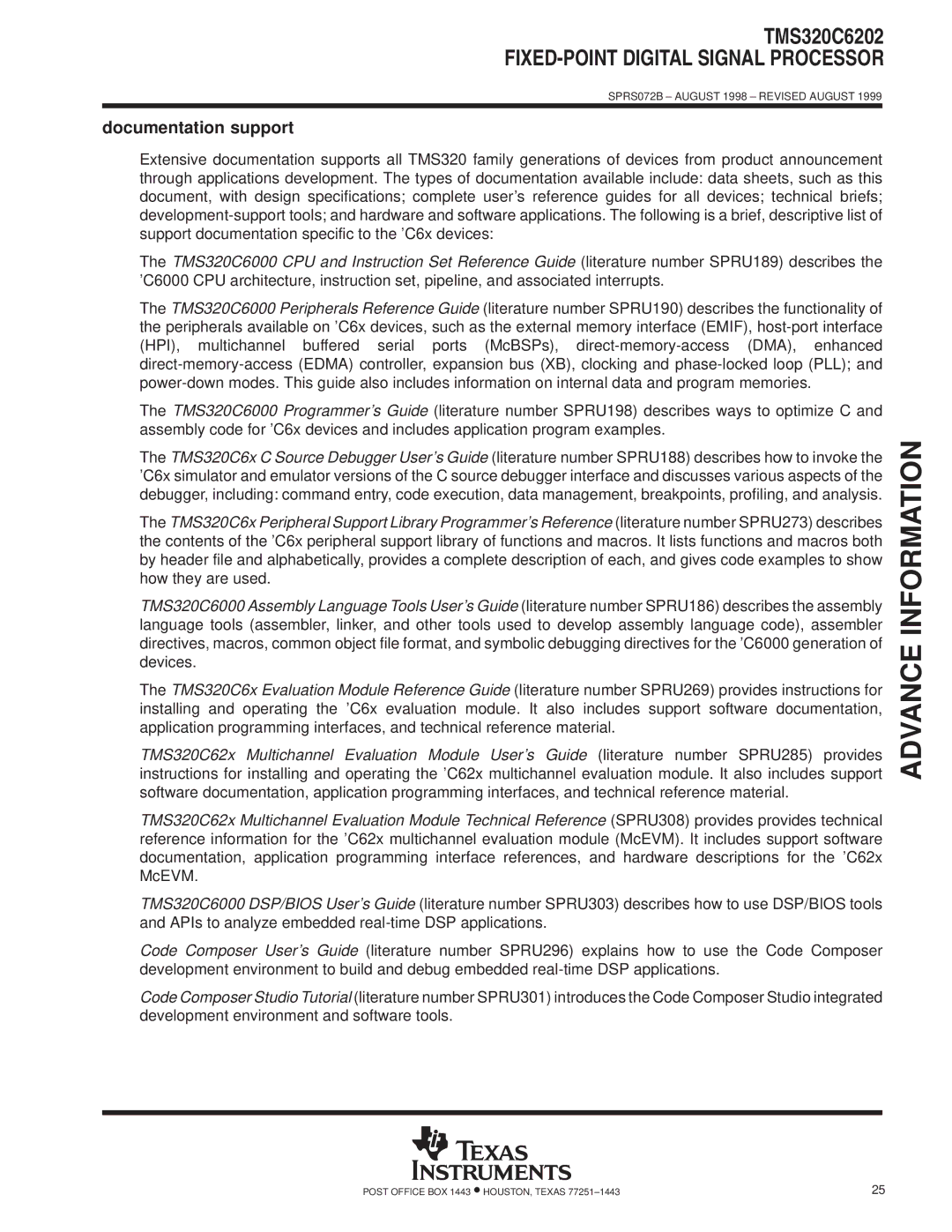TMS320C6202 specifications
The Texas Instruments TMS320C6202 is a powerful digital signal processor (DSP) that is well-regarded in the realm of high-performance computing applications. As part of the TMS320C6000 family, the C6202 was designed to meet the demanding requirements of telecommunications, audio and video processing, and other real-time digital signal processing tasks.One of the primary features of the TMS320C6202 is its superscalar architecture. This allows the processor to execute multiple instructions simultaneously, significantly improving throughput and efficiency. With two functional units, the DSP can execute both fixed-point and floating-point operations in parallel, optimizing performance for various computational workloads.
The core clock frequency of the TMS320C6202 typically reaches up to 150 MHz, which means it can process instructions at impressive speeds. This high frequency, combined with an advanced instruction set that includes efficient looping and branching instructions, makes the C6202 highly adept at handling complex algorithms common in digital signal processing.
Memory access is another critical characteristic of the TMS320C6202. It supports a unified memory architecture featuring both on-chip SRAM and external memory interfaces. This enables seamless data transfer between the processor and memory, improving overall system performance. The processor can interface with diverse memory types, including SDRAM and other high-speed memory technologies, further enhancing its versatility.
Furthermore, the TMS320C6202 incorporates a range of built-in features designed to facilitate efficient development. Its integrated hardware multipliers and accumulators allow rapid computation of mathematical functions, while on-chip debugging support simplifies the development process. Additionally, the processor features a host of peripheral interfaces, enabling integrations for input/output operations, essential for real-time applications such as multimedia processing.
Texas Instruments excels in providing software and development tools for the TMS320C6202. The Code Composer Studio (CCS) and various libraries enhance the ease of programming and optimization for this DSP, which helps engineers accelerate product development.
Overall, the Texas Instruments TMS320C6202 is a robust digital signal processor characterized by its high-speed performance, dual functional units, innovative memory architecture, and support for sophisticated algorithms. It has become a preferred choice for applications requiring intensive signal processing capabilities, making significant contributions to fields such as telecommunications, multimedia, and industrial automation.

